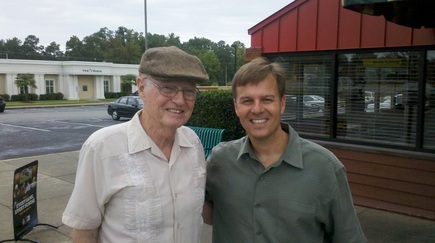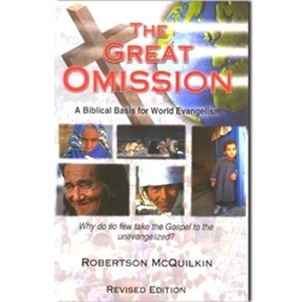posts
|
This title sums up nicely my next few days. Tomorrow, I am on my way to Scottsdale, AZ to take part in a conference called "Reset: Mission in the Context of Deep Change," a meeting co-sponsored by The Mission Exchange, CrossGlobal Link, and the Evangelical Missiological Society. As part of the EMS program, which is focused on the theme of urban mission, I will be presenting a paper entitled, "Basil of Caesarea: An Early Christian Model of Urban Mission." My hope and prayer is that interacting with this historic case study will stimulate our thinking for urban missions today. In the abstract, I write:
"The hungry are dying. . . . The naked are stiff with cold. The man in debt is held by the throat." This is how Bishop Basil (329-379) described his city Caesarea of Cappadocia in the late fourth-century, especially amid a lingering famine that plagued his region. As the twenty-first century church ministering in the world's cities continues to deal with problems such as hunger, usury, corruption, unemployment, displaced peoples, and even slavery, it seems useful to consider some models of urban mission from the church's past. In this paper, I will explore the approach to urban ministry by the well-known church father Basil who is remembered mostly for his contributions to fourth-century Trinitarian theology. Following a brief survey of his life and call to ministry and the context in which he ministered, I will discuss his practical strategies and theology of mission regarding ministry in the city. In conclusion, I will begin a reflective conversation between Basil and modern practitioners on ministering in urban contexts. Before the conference, I look forward to spending the day with a former student who is serving the Lord among Somali immigrants in the Phoenix area and then we'll catch the last home game of the playoff bound Arizona Diamondbacks. Mission, reflection, fellowship and surely coffee await. Last week, while guest lecturing at Columbia International University, I had the privilege to have lunch with one of my heroes--Robertson McQuilkin, former president of CIU. I wrote about McQuilkin last week due to his courageous step to leave his career as a college president and care for his wife who was suffering from Alzheimers. As we spoke about that decision, he simply noted his actions were "normal" and that many people care for a spouse or loved one with Alzheimers. His position just made him more of a high profile caregiver.
A highlight of our visit was when McQuilkin signed my copy of his book The Great Omission. The thrust of the book is based on 5 reasons why nearly half the world has not heard the Gospel: 1. We (the church) don't care that much. 2. We don't see very well and certainly lack God's vision for the nations. 3. We think there must be some other way and that everyone will be eventually be saved. 4. We don't pray with power. 5. We're not listening and responding to God's call to make disciples of all of the nations. I read this short book (not even 100 pages) my freshman year in college at N.C. State and God used it to challenge me to give my life so that every tribe and language and nation would have a chance to hear the Gospel. Even through several international moves over the past 20+ years, I've held onto to this little book. My prayer though is that I won't ever let go of the vision that it instilled in me. The Facilitator Era is the latest work from well-known missiologist Tom Steffen. Presently, Steffen is professor of intercultural studies at Biola University and directs the Doctor of Missiology program at Biola’s Cook School of Intercultural Studies. Prior to assuming his present role, Steffen served with New Tribes Mission as a church planter among the Ifugao people of the Philippines for fifteen years, after which he consulted the mission in church planting for another five years. His previous books include Passing the Baton: Church Planting that Empowers (1997), Great Commission Companies: The Emerging Role of Business in Missions (with Steve Rundle, 2003), Reconnecting God’s Story to Ministry: Crosscultural Storytelling at Home and Abroad (2005), Business as Mission (with Mike Barnett, 2006), and Encountering Missionary Life and Work (with Lois McKinney Douglas, 2008). Steffen has also contributed numerous other articles to missiology journals, particularly in the area of church planting and orality.
True to his own convictions, Steffen masterfully frames the arguments in this book around an engaging story. In nine weekly encounters, intercultural studies professor Dr. C.P. Nobley meets with his former students, Bill and Bev Beaver, who are on furlough after two years of service in the Philippines. Questioning their role as international transcultural workers, they approach Dr. Nobley who helps them (and the audience) reflect critically on a new paradigm and period of missions—the facilitator era. Referring back to Ralph Winter’s three eras of mission history—the coastlands (led by William Carey), the inlands (led by Hudson Taylor), and unreached peoples (led by Cameron Townsend and Donald McGavran)—Steffen, via this story, proposes that the most useful role for missionaries today is to help facilitate the pioneer church planting ministries of national believers. Read the rest of the review on pp. 6-8 of the Fall 2011 edition of the Occasional Bulletin of the Evangelical Missiological Society. In the wake of Pat Robertson's comments this past week on the legitimacy of divorcing a spouse with Alzheimers, my thoughts went to another Robertson--Robertson McQuilkin, the former president of Columbia International University who resigned from his position in 1990 to care for his wife Muriel who was suffering from Alzheimers. McQuilkin's motivation for resigning from his job to care for his spouse was a basic commitment to his marriage vows ("in sickness and in health") made 40 years before. Such radical, counter cultural commitment to the sanctity of marriage is one reason that McQuilkin is one of my heroes. A few years ago, Christianity Today did an extended interview with McQuilkin and Day of Discovery has also captured their story in a moving video.
We should pay attention to Robertson (McQuilkin) on Alzheimers and marriage. |
Archives
November 2023
|



 RSS Feed
RSS Feed
